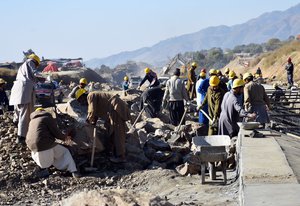This four-part virtual panel series is presented by the Centre for International Governance Innovation (CIGI) in collaboration with the Human Rights Research and Education Centre at the University of Ottawa. The series celebrates the publication of CIGI’s newest book, Corporate Citizen: New Perspectives on the Globalized Rule of Law, which explores the legal frameworks and standards of conduct for multinational corporations.
This session provides an update on the role of the multinational corporation as a key engine of the economy and the state of the law on multinational corporations. Expert panellists discuss the increased intervention in the post-COVID-19 world of governments in the economy, concerns about working conditions, protection of national supply chains for essential goods, the shift to virtual work, the stresses on some sectors and so forth. They consider how government and industry action in the coming months to address socio-economic recovery from the COVID-19 pandemic could reshape the corporation.
Moderator:
- Oonagh E. Fitzgerald, Editor, Corporate Citizen: New Perspectives on the Globalized Rule of Law
Panellists:
- Tabatha Bull, President and CEO, Canadian Council of Aboriginal Business
- Richard Janda, Associate Professor, Faculty of Law, and Associate Member, School of Environment, McGill University
- Lucas Mathieu, Judicial Fellow, International Court of Justice
- Sara Seck, Associate Professor of Law, Dalhousie University
Written Summary of Session 1: The State of the Corporation and Corporate Law
By Veronica Cesario, Law Student, University of Ottawa
This panel series, The Corporate Citizen in the Time of COVID-19, was co-hosted by the Centre for International Governance Innovation (CIG) and the University of Ottawa's Human Rights Research and Education Centre (HRREC). Session 1, "The State of the Corporation and Corporate Law," was moderation by Oonagh Fitzgerald, HHREC senior fellow, former director of international law at CIGI and editor of the new book Corporate Citizen: New Perspectives on the Globalized Rule of Law. She welcomes participants, gave a land acknowledgment, thanked the co-sponsors, provided a brief overview of the book that inspired the panel series, and introduced the panellists.
The panellists were Tabatha Bull, Richard Janda, Lucas Mathieu and Sara Seck. Tabatha Bull is Anishinaabe and a proud member of Nipissing First Nation near North Bay, Ontario. She is the president and CEO of the Canadian Council for Aboriginal Business, which works with Aboriginal and non-Aboriginal businesses to help strengthen a prosperous Indigenous economy and Canadian market. Richard Janda is an associate professor of law at McGill University, where he teaches extracontractual obligations, business associations, administrative process and environmental law. Lucas Mathieu is a judicial fellow with the International Court of Justice. He is interested in public and private international law. Janda and Mathieu co-authored the chapter “Made in Everywhere: Transformative Technologies and the (Re)codification of CSR in Global Supply Chains” in the book Corporate Citizen. Sara Seck is an associate professor and associate dean of research at the Schulich School of Law and the Marine & Environmental Law Institute at Dalhousie University. Seck co-authored with Keith MacMaster the chapter in Corporate Citizen entitled “Mining for Equality: Soft Targets and Hard Floors for Boards of Directors?”
Fitzgerald invited the panellists into a discussion framed around three general questions about the state of the corporation and corporate law in the time of the coronavirus disease 2019 (COVID-19) pandemic. The first question was about how the limited liability corporation has evolved since the Limited Liability Act of 1855. Bull began by observing that, for many years, Indigenous entrepreneurs were excluded from the Canadian economy by the Indian Act. She noted that, while things have improved, there are many Indigenous businesses that are small, underfunded and unincorporated. Janda discussed how incorporation is the generally available way of doing business and how businesses can no longer separate themselves from their social context. Seck described recent developments in attempting to improve board diversity and how, in some jurisdictions, this has led to instituting diversity quotas. Mathieu suggested that the social ecosystem cannot be separated from companies and that the state is important in helping to establish the norms that companies should follow. Bull also mentioned the progress some corporations across Canada have made in connecting with Indigenous businesses and finding ways to have a positive social impact on Indigenous communities.
The second question focused on the impact of COVID-19 on the economy and on corporations of all sizes, whether large-scale multinationals, medium-sized or small businesses or Indigenous enterprises, and governments’ willingness to intervene in the economy, asking whether it made any sense in today’s circumstances to insist, as Milton Friedman once had, that “the business of business is business.” Bull mentioned that while the government did roll out assistance programming very quickly, there were some gaps in its application to Indigenous peoples. She recommended that the government look to small and medium-sized enterprises in Canada when seeking to restock personal protective equipment inventory from local sources. Mathieu discussed how the government in the Netherlands has allowed businesses to decide individually how they would deal with COVID-19, including whether or not they would require customers to wear masks. Janda noted how there have been a number of important shifts in terms of the government supporting the economy and suggested that these changes would have repercussions on how the relationships between business and government operate in the future, with businesses relying more heavily on government supports. Seck spoke about how our responses to COVID-19 should all be connected to the idea that the pandemic, like climate change, was a predicted consequence of human population pressures and impacts on the natural world. Seck proposed the idea of workers as “ecologically embedded relational individuals,” who are differently impacted by external forces. According to Seck, a good business enterprise is not just about making money but also entails the internalization of ecological costs.
The third question was about what will be needed to spur a global recovery in the coming months and years, and to get the world on track to achieve the 2030 Sustainable Development Goals. Seck discussed how the “build back better theme” needs to be centred on ecological systems and knowledge. Bull commented on the future of Indigenous business and inclusive growth, seeing COVID-19 as an opportunity to have diverse perspectives on boards. Janda discussed the idea of regrowth and how we should be better prepared to deal both with events that produce similar impacts on the economy and with times of degrowth.
The panellists also had an opportunity to answer questions from the audience, on COVID-19, marginalized communities and corporate social responsibility (CSR). The panellists discussed the infrastructure gap in many Indigenous communities, specifically, poor access to safe drinking water and to the internet and data sovereignty. It was noted that discussions around Black Lives Matter and Indigenous communities reflect the deeply entrenched institutional racism that pervades the socio-economic sphere. Janda expressed a concern that the environmental crisis would continue to divide people between haves and have-nots. It was suggested that the state should provide better guidance to corporations on how to include more marginalized communities in their business models. Also, governments need to provide more guidance to organizations that want to work alongside Indigenous treaty rights holders.
Mathieu defined genuine CSR as one in which the shareholders and those who develop these companies have responsibility to society’s needs. Seck reflected on the lack of definition of CSR and that although it is often referred to as a voluntary obligation, it has become legally relevant, especially in the context of liability for environmental harms. Janda stated that the Supreme Court of Canada has given quite reasonable guidance on corporate fiduciary duties, corporate duties of due diligence and corporate citizenship. He challenged the audience to think of CSR as no longer merely a goodwill gesture but rather as part of the corporation’s legal licence to operate.
To conclude, panellists were asked if COVID-19 could lead to more sustainable business practices. Seck discussed the importance of encouraging individuals to think differently and to question what lies behind the corporation, in order to make transformative changes in this moment. Bull considered that while COVID-19 is not going to lead directly to sustainable businesses, this pandemic has raised awareness about inequalities in Canada and their adverse impacts on marginalized and underrepresented communities. Mathieu recognized the global importance of CSR to sustain a company during a crisis such as the COVID-19 pandemic. Janda highlighted how the pandemic has shown organizations the importance of being prepared for this type of crisis. Corporations, business and the economy tend to be seen as a locus of rationality, and the pandemic is revealing how essential rational planning is to dealing with the new supply chain, logistics and innovation challenges; accordingly, we can expect corporations to play a major role in the COVID-19 recovery efforts.


